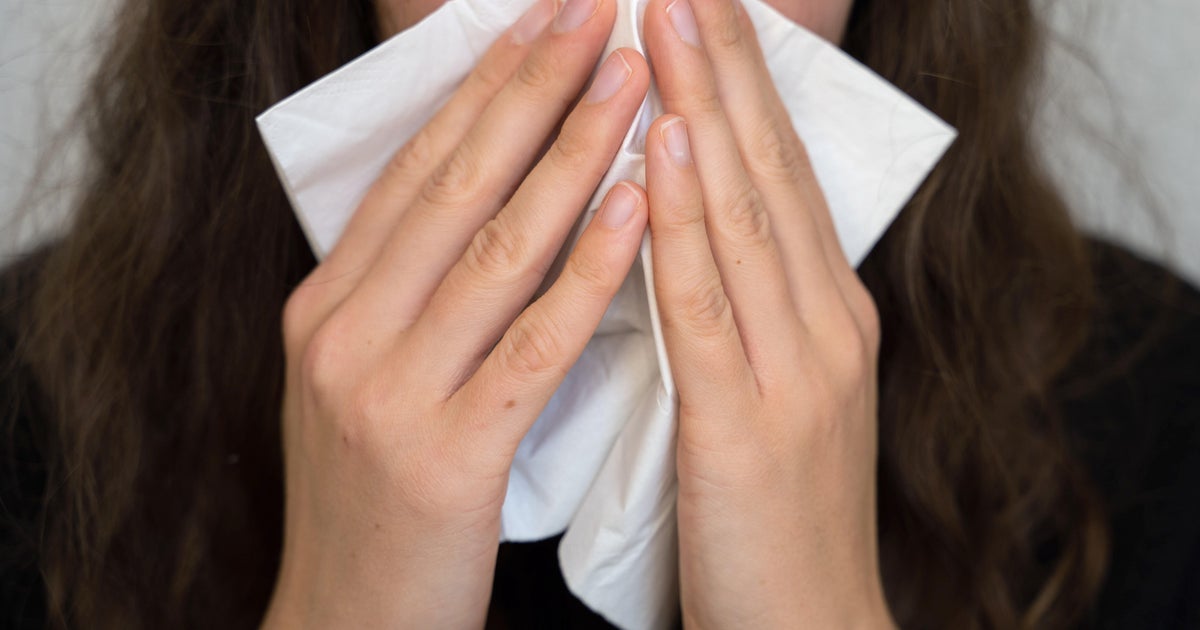Transcript: Maria Van Kerkhove on "Face the Nation," February 7, 2021
The following is a transcript of an interview with Maria Van Kerkhove, the World Health Organization's COVID-19 technical lead, that aired February 7, 2021 on "Face the Nation."
MARGARET BRENNAN: We want to go now to the World Health Organization's COVID-19 lead. That's Dr. Maria Van Kerkhove. She joins us from Geneva, Switzerland. Good to have you with us, Dr..
WHO COVID-19 TECHNICAL LEADER DR. MARIA VAN KERKHOVE: Hi, MARGARET, thanks for having me.
MARGARET BRENNAN: You're an epidemiologist. You specialize in zoonotics, which means you know a lot about how these viruses jump between species like COVID did. These new variants, you've described them as a combination of mutations all at the same time. What does that mean?
DR. VAN KERKHOVE: Well, these viruses change all the time, and- and every time they replicate, the more they spread, the more changes that they can have. These are called mutations. These are individual changes in the genome itself. These variants have had a combination of mutations, which mean a number of mutations identified at the same time. And so that means that this clustering of these- of these mutations happening at the same time are quite different than individual-level mutations. And we've had three such variants being reported, actually four such variants being reported in the last few months. The first in Denmark, the second reported from the United Kingdom, the third from the- South Africa and the fourth from Brazil.
MARGARET BRENNAN: So which countries have actually been successful in- in containing the virus and is there a common approach to their success?
DR. VAN KERKHOVE: Well, that's a great question. There's- there is a common approach that many countries have taken to control the SARS-CoV-2 virus, including these virus variants that have been detected. And it's a combination of factors. It's in- it's individual levels that we've- individual-level measures that we've seen people take, you and I, in terms of our physical distancing, our mask wearing, our avoiding of crowded spaces, our opening of windows, our sneezing into our elbow. All of those measures are really critical, as well as government-led responses where we have all-of-government, all-of-society approach, where we're conducting active case finding, where we know where the virus is. We can support people who are infected through good clinical care. We make sure that those individuals are isolated. Any contacts of confirmed cases are provided supported quarantine so that if they are infected themselves, there is no opportunity for them to pass the virus to others, making sure that we open up our workplaces safely, our schools safely. It's a combination of factors, and many countries have done well in- in having an aggressive approach to making sure that they have the testing, the tracing, the clinical care and really strong, empowered, enabled and engaged communities. It's all of this. You hear us say a lot, do it all. This is what we mean by- when we say do it all.
MARGARET BRENNAN: When you're talking about things like enforcing quarantine, I- it sounds like you're talking about Australia, New Zealand. Are those the best examples?
DR. VAN KERKHOVE: We have great examples all over the world of how countries have used these- these combinations of factors. When I use the word quarantine, I'm using this in the sense of contacts of confirmed cases. So when you have a case that is infected, that individual who is infected with the SARS-CoV-2 virus needs to be provided with good clinical care, and they need to be isolated from others so that they don't have the opportunity to pass it to someone else. But before they go into isolation, they may have many contacts, and those contacts of individuals who- of cases need to be provided supported quarantine, which means they're separated from others and provided food and care and safety and security for 14 days while they wait and make sure that they're not infected themselves, they get a test themselves, but they don't have the opportunity to pass to others. South- South Africa is- is a good example where they got through their first peak, countries across Asia and the Pacific, including Australia and New Zealand. But in fact, we've actually seen really strong responses across Europe during their first peak, where over the summer months in Europe cases were down to single digits. And they showed us, and many countries across Africa, across Europe, across the Americas, have shown that they can drive transmission down. And this is really, really critical now that we have these virus variants being detected, because the more opportunities this virus has to spread--
MARGARET BRENNAN: Right.
DR. VAN KERKHOVE: --the more opportunities it has to change. So we need to make sure we prevent as many infections as we can.
MARGARET BRENNAN: Which part of the world is going to be most complicated to vaccinate?
DR. VAN KERKHOVE: That's a great question. We need to vaccinate people at-risk all over the world. So, I think there are different complicating factors in- in different parts of the world for different reasons. But what we want to make sure that we do is, number one, that we have multiple safe and effective vaccines that are in production, that continue to be tested, continue to be studied, to continue to come online--
MARGARET BRENNAN: Are you concerned by this AstraZeneca report?
DR. VAN KERKHOVE: That we have good production capacities all over the world. Say that again- say that again.
MARGARET BRENNAN: Are you- are you concerned by this reporting that AstraZeneca's vaccine may not be effective against the South African variant, B.1.351?
DR. VAN KERKHOVE: Yes, so the B.1.351 variant identified- first identified in South Africa, there's a number of studies that are underway to look at the response of the body, the immune response of the body, but also the impact of vaccination. There are some preliminary studies suggesting reduced efficacy, but again, those studies aren't fully published yet. And our group, our- our independent panel group on vaccinations, is meeting tomorrow to specifically discuss the AstraZeneca vaccine, as well as the results coming out of South Africa to determine what does this mean in terms of the vaccines going forward. But this is why it's really, really critical that we have more than one safe and effective vaccine. We cannot rely on only one product, and that is not the goal of anyone around the world. So, that is definitely something we need to continue to push forward. But again, vaccines are not just enough. It's vaccination that's really critical. We need to make sure everyone who is at risk, you know, the elderly, people who are most at risk for severe disease, receive the vaccine in all countries around the world, as well as health workers all around the world, as opposed to everybody in just a handful of countries.
MARGARET BRENNAN: World Health Organization investigators a year after the outbreak began in China have now been allowed in to look at what happened on the ground. Is this just a show by the Chinese government?
DR. VAN KERKHOVE: No, it's not. In fact, we have a team of 10 international scientists. You called them investigators, but indeed they're- they're scientists from a number of different technical fields, as well as people from WHO, my colleagues. And we have colleagues from FAO and OIE who are supporting the mission as well. And this is- these are studies that are ongoing to find the virus origins and understand the intermediate hosts. You know, what were the zoonotic origins of this pandemic? And this is really, really critical from a public health perspective so that we know and we can take steps further to prevent this from happening again. They're very good discussions that are having on the ground. There are constructive exchanges between this international team from 10 different countries, as well as the Chinese counterparts, looking at the earliest cases, looking at studies from the markets. They've had visits to hospitals. They've had visits to two laboratories, including the Wuhan Institute of Virology, as well as visiting different levels of the Chinese Centers for Disease Control. So, we're hoping for the reports as soon as possible, and that will be made available as soon as it can be.
MARGARET BRENNAN: All right, Doctor, thank you for your time this morning. Good luck to you. We'll be right back with Dr. Scott Gottlieb.



